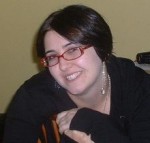Vote – to ‘change the world’
With Rich Tarrant and Bernie Sanders ads splattered all over television and campaign signs on numerous lawns around the state one might have guessed it’s almost election time. It’s just around the corner, Nov. 7 to be exact, and that leaves little time to catch up on where candidates stand on important issues. But before researching candidates, one thing must be done if it hasn’t already – registration.
“I never found it to be all that important or valuable,” 19-year-old Castleton sophomore Justin Morris said about registering to vote.
“There was never any real motivation to do it,” he continued explaining how he doesn’t feel his vote would make a difference. “But I also think that is because of the fact that I don’t know enough about how it all works.”
Morris said he believes others his age don’t vote for the same reason and he said education about politics might incline him and them to register.
They’re in luck. There will be a chance for Morris and others to register to vote here on campus through a program called The National Campus Voter Registration Project being initiated by the American Association of State Colleges and Universities (AASCU).
Matthew Patry, academic counselor at Castleton’s Academic Support Center, was asked by Castleton’s Academic Dean Joseph Mark to work with the American Democracy Project in registering voters through the AASCU program.
The goal for AASCU is to register 40,000 students nationwide and approximately 105 students here at Castleton.
The project is a research experiment to see which methods of getting students to register works best. At public colleges, where this project is being initiated, the methods of getting out voter information is by mailings to campus boxes, campus e-mails, tabling, and classroom presentations, some led by students others by professors.
Here are Castleton, the project is experimenting with traditional tabling and professor-led presentations in classrooms. Fifteen members of Castleton’s faculty have agreed to be part of this program, one being Professor Linda Olson.
Olson agreed to participate, but is now waiting for further instruction. Some professors will be presenting to their classes voter education brochures about registering and other classrooms will being the controlled part of the experiment in which they will be required to say nothing about registering.
There will also be registration booths in different locations on campus in hopes to get commuters as well as those who live on campus to register.
Castleton senior Tara Chagnon voted in the primary election so certain candidates wouldn’t go onto the mid-term election and she speaks of how important it is to have her vote count.
“They [students] don’t care, don’t think their vote means anything,” she said.
She stressed the importance of obtaining an absentee ballot for the election, and said that just because students are away from home shouldn’t be an excuse not to get their vote in.
Youth voting is lower for mid-term elections than in presidential election years, but both Tarrant and Sanders officials say they want college voters to hit the polls this year.
Jordan Coopersmith, a Sander’s campaign office field staff member, spoke about a staff member from their campaign being assigned to almost every college in the state to help reach out to students, to get them to vote. They’ll even help them get to the polls on Election Day, he said.
“In contexts of our grassroots campaign, this can only be successful if student activists take charge,” Coopersmith said.
The Tarrant Campaign Manager, Tim Lennon, spoke about Tarrant on education, how Tarrant is on the board of UVM and St. Michael’s College and understands issues that are important to college students. He spoke of Tarrant’s desire to have a Vermont technical college within commuting distance of all Vermonter’s so students can stay at home if they have to and attend classes.
“If we can get students to change their mindset to ‘I can make a difference’ they can,” Patry said.
He said students “feel the process doesn’t represent them,” but he stressed that a small group of passionate students can make a difference.
Twenty year-old Castleton junior Shea Bigsby agrees with the thought that so few students her age vote “because they don’t think that they matter.”
“But what they don’t realize is that their votes could change everything — if they voted,” she said.
Bigsby is voting in the midterm election because issues like education, health care, the environment and the war are important to her and she wants her voice heard.
“We can change the world,” she said. “Vote because you can change the world.





